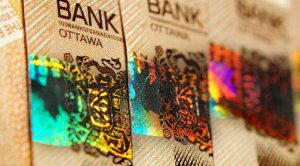 Parties are out-competing themselves in massive giveaways in the belief that deficit spending has no economic cost, writes Jack Mintz in the Financial Post. Below is an excerpt from the article, which can be read in full here.
Parties are out-competing themselves in massive giveaways in the belief that deficit spending has no economic cost, writes Jack Mintz in the Financial Post. Below is an excerpt from the article, which can be read in full here.
By Jack Mintz, September 9, 2021
For over a decade now, interest rates have been so low they haven’t let investors keep up with inflation, never mind taxes on their investment income. Bank GICs and treasury bills that pay diddly-squat don’t cover future retirement expenses. So, what do people do? They invest in risky assets like real estate, equities, commodities and junk bonds to get a better return. Some, even late in their careers, load up with cheap debt to purchase housing and other risky assets. Markets eventually turn sour, as they did in 2008, 2011, 2015 and 2020, taking away investment gains. Once risk costs are included, investors earn the same return as they would putting their money into safe assets. That is lesson #1 from an introductory finance course.
Unlike investors, who think about their heirs, our politicians often ignore risk, given their short election cycle. As Minister of Finance Chrystia Freeland wrote in the forward to the 2021 budget: “In today’s low interest rate environment, not only can we afford these investments in Canada’s future, it would be short-sighted of us not to make them.” So, Canada took on a $335-billion deficit this past year to pay for income transfers so generous that household income went up by ten per cent during the pandemic recession.
Unlike investors, who think about their heirs, our politicians often ignore risk, given their short election cycle. As Minister of Finance Chrystia Freeland wrote in the forward to the 2021 budget: “In today’s low interest rate environment, not only can we afford these investments in Canada’s future, it would be short-sighted of us not to make them.” So, Canada took on a $335-billion deficit this past year to pay for income transfers so generous that household income went up by ten per cent during the pandemic recession.
***TO READ THE FULL ARTICLE, VISIT THE FINANCIAL POST HERE***




